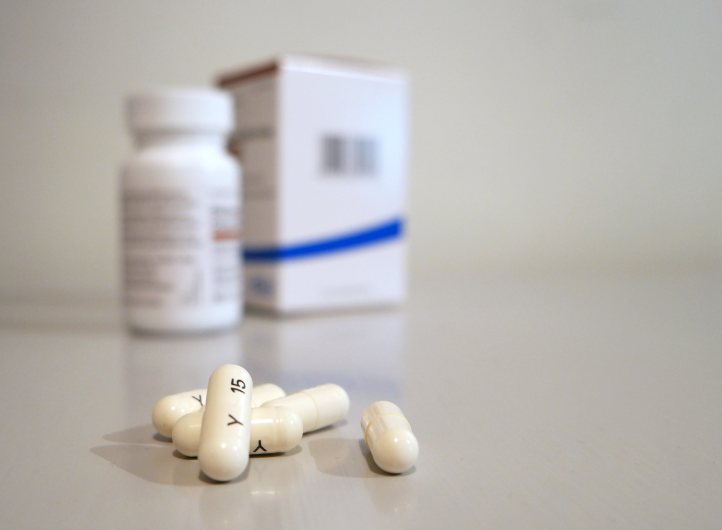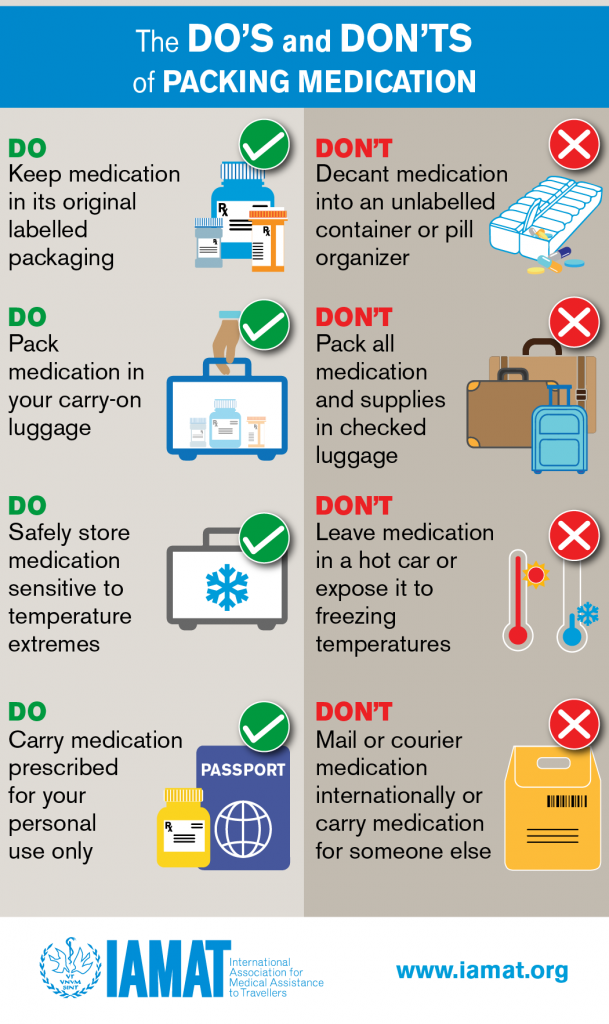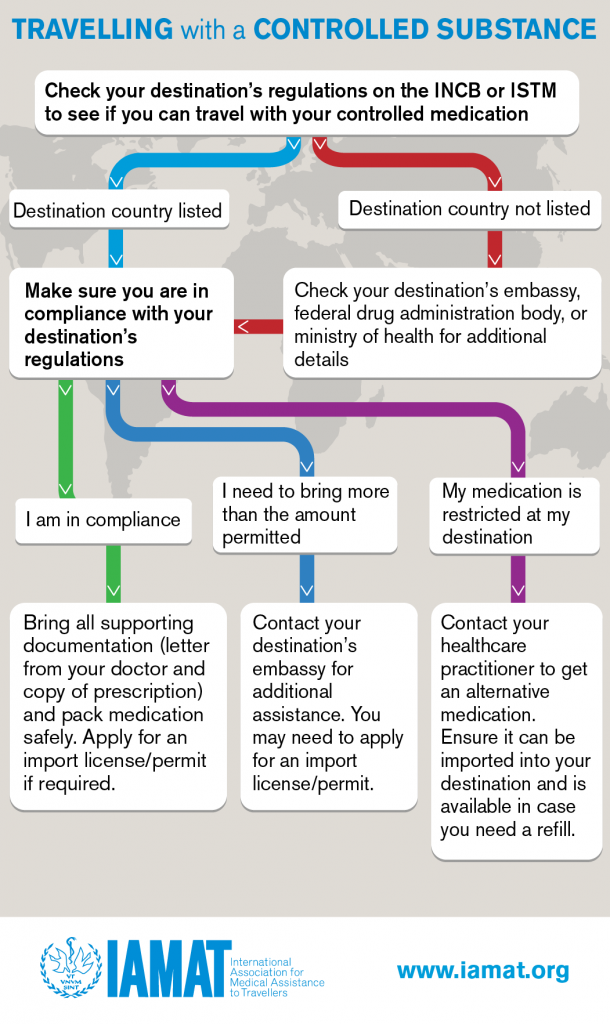Do you know if you can legally travel with your medication? If you’re unsure, you’re not alone. Many of us are unaware of or confused about the restrictions countries place on the import of medication for personal use. And unfortunately, finding out about international regulations is no easy task.
Countries independently regulate the import of medicines and many do not have publicly available or clear guidelines. In this blog, you’ll find everything you need to know about travelling across borders with prescription and over-the-counter medications. (Need even more information? Check out Travelling with Medications: A guide.)
How much medication can I bring?
It depends. The amount of prescription medication you can take with you varies depending on your destination’s regulations and the type of substance you are travelling with.
Typically, travellers are permitted to bring a 30- to 90-day supply of prescription medication that does not contain a controlled substance. Medication that contains a controlled substance is highly regulated.
What are controlled substances and why are they an issue?
A controlled substance is a drug that is internationally regulated due to its high risk for addiction and misuse. Controlled substances include certain narcotic and psychotropic medications (substances that target the central nervous system and have a psychoactive effect, changing the way you think, feel, or behave). For example, regulated narcotics include acetaminophen/hydrocodone (Vicodin) and methadone (Dolophine). Examples of regulated psychotropic substances include amphetamine/dextroamphetamine (Adderall) and zolpidem (Ambien).
Countries place strict limitations on the type of controlled substance that can be imported. But, limitations can vary widely. Some countries may allow for a 30-day supply, while others only allow for a few days. In some cases, certain controlled substances can be outright banned from being brought into the country. For example, Japan prohibits stimulant drugs (amphetamines, methamphetamines) such as specific medications for ADD/ADHD like Adderall, Dexedrine, and Vyvanse, as well as common over-the-counter medications like Actifed, Sudafed, and Vicks inhalers. Even with a valid prescription from your general practitioner, these substances are not permitted into Japan.
How do I find out about my destination’s regulations on importing medicines for personal use?
To find out what regulations your destination places on importing medicines, check:
- The International Narcotics Control Board (INCB) website. This is an independent and quasi-judicial organization responsible for international drug control. Countries must self-report their regulations to the INCB and as such, some listings are incomplete or outdated.
- The International Society of Travel Medicine (ISTM) pharmacist group has also compiled a list of international regulations on the importation of medicines for personal use. This list also relies on self-reported regulations, so information may be incomplete or outdated.
You should always look at multiple sources when reviewing your destination’s regulations. This is because the information countries provide online may be outdated, unclear, or not available in your language. Many countries also have not made their regulations public, so you may have to contact their embassy, consulate, or national drug administration body for more information.
For help navigating controlled substance regulations for your destination, check out the following graphic:
What documentation should I bring?
When you are travelling with any medication, you should always bring the following:
- A copy of your original prescription.
- A letter from your doctor that includes details of the medication (including its generic and brand name, and dosage), any required medical supplies, and the condition being treated.
These documents can help you navigate customs if you are asked to declare, but they can also be useful in case you need to see a doctor or pharmacist during your trip. If possible, have these documents translated into your destination’s language.
If you are travelling with more than the permitted amount of prescription medication or a controlled substance, you may be required to declare it. You may also need to apply for an import license or permit to import your medication to present at the border.
To learn more about travelling with medications, check out:
Travelling with medication: A guide
This resource includes everything you need to know about travelling with medications including how to:
- Navigate country restrictions
- Travel with a controlled substance
- Pack medication for transit
- Navigate customs with medications
- Find medication abroad in case you need a refill
- Avoid fake or substandard medication abroad
Photo by Julie Viken, Pexels
Article by Claire Westmacott





